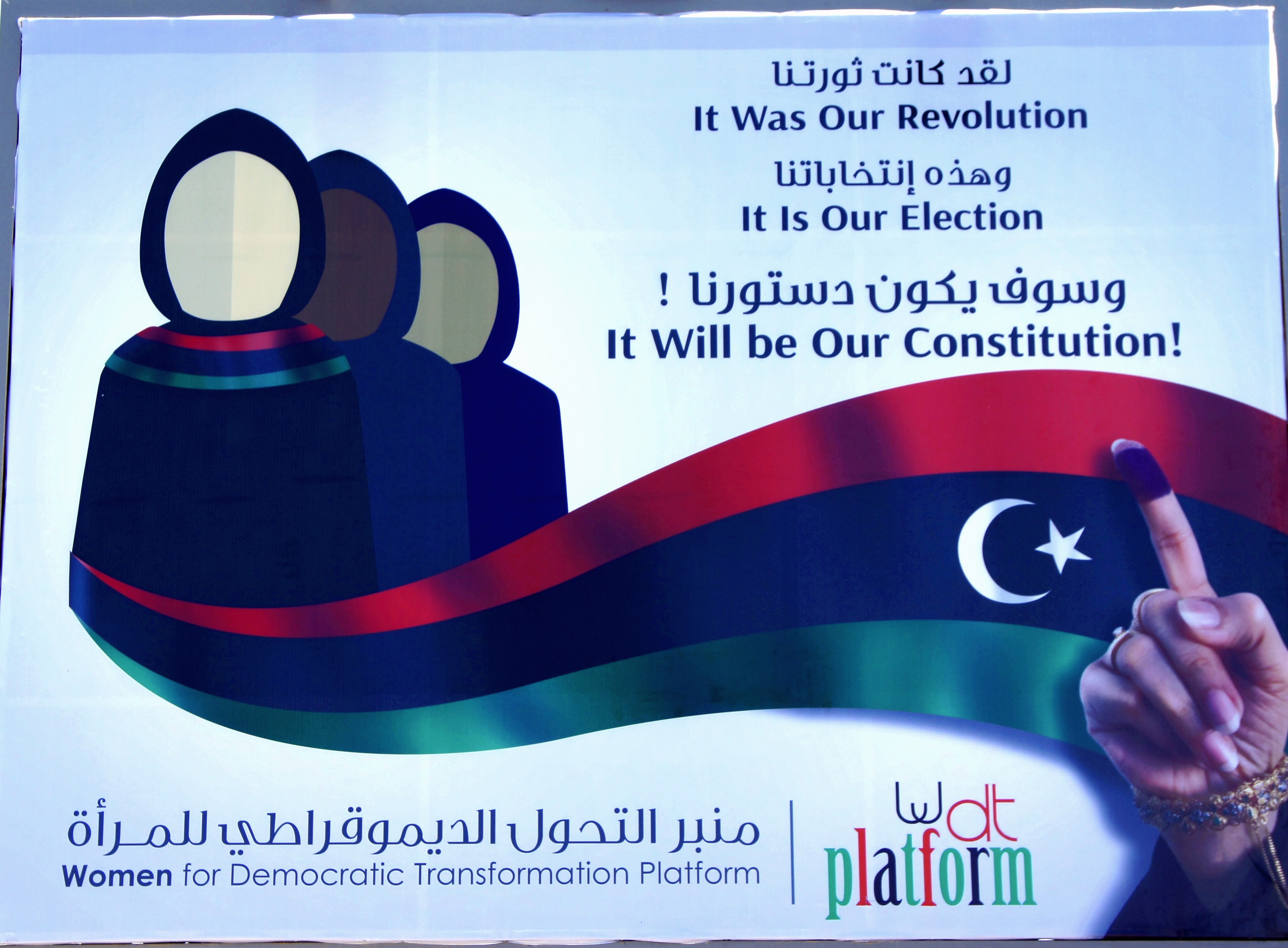Highlights
G-Concerns Libya Special March 2014

Read about the positive momentum in the women's movement of Libya and how Gender Concerns is helping their voices be heard, while building capacities for lasting progress.
It's a historic moment in building the future of the country for all people, and the occasion of International Women's Day gave reason for more than 400 people to celebrate with Gender Concerns and the EU Delegation to Libya.
Click on the link below for the special issue of G-Concerns Newsletter
Inspiring Change: Our Revolution, Our Constitution – G-Concerns Libya Special, March 2014
‘Inspiring Change: Our Revolution, Our Constitution’ (8 March, Tripoli, 2014)
As part of the Dastoor programme and in celebration of the 103rd anniversary of International Women’s Day, Gender Concerns International convened a meeting in Tripoli, Libya.
For Gender Concerns International, the International Women's Day is an occasion marked by the United Nations and women's groups around the world, when women of all continents bridge their national, linguistic, cultural and political differences to come together to celebrate their Day, they become a part of tradition that represents more than 100 years of progress in working for equality, justice, peace and development.
Prominent guest speakers invited to attend the celebrations included Ms. Sabra Bano, the Director of Gender Concerns International, H.E. Nataliya Apostolova, EU Ambassador to Libya and Catherine Ashton, High Representative of the EU for Foreign Affairs and Security, by video message.